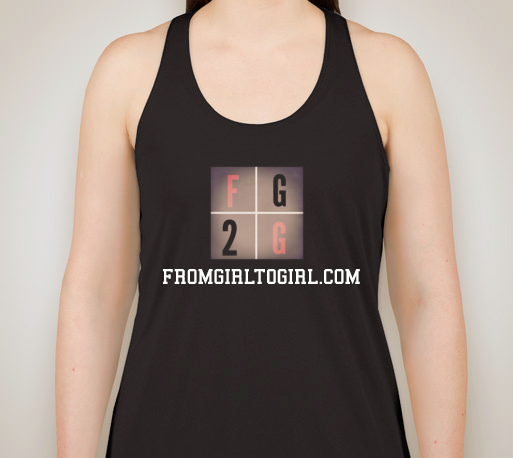With the digital space rapidly evolving like never before, the future of marketing – especially digital
marketing, remains in flux, with new platforms rising from the ground up at unprecedented speeds. A marketing agency needs to stay on top of all relevant trends, whether old, new, or even
upcoming ones. This can be an especially challenging task, as new updates and events continue to pop up all the time. Every new development will most likely shift the way agencies and brands communicate with their customers.
Here are just a few of the top trends that marketing agencies need to know to ensure that the brands they work with continue to stand out and gain new
audiences.
Using short DIY videos
Video is no doubt a must-have for digital marketing. With the meteoric rise of the social
media platform TikTok, it now boasts over 1 billion active monthly users. Geared toward a
younger audience, it has remained incredibly popular to focus on short-form video sharing.
This makes it easy for content creators to edit, post and remix video content on the platform – which
can easily go viral if the circumstances are right. Other social media sites are following suit, with
Instagram launching reels and YouTube launching YouTube shorts to capitalize on short-form video
content. The great thing about short videos is the next to nothing cost, and can be made
using a smartphone – without the need for fancy camera equipment and lights. Short DIY videos are also fantastic in marketing a brand’s services and products, as more and more consumers are now used to consuming content at a fast-paced rate. It is also a great method of showcasing authenticity, to make a brand more relatable to audiences.
Launch of the metaverse
Mark Zuckerberg has officially launched the Metaverse – making it one of the top digital marketing trends to look out for in the coming years. Brands are already making investments into the Metaverse such as the business aviation industry, creating virtual reality tradeshows and exhibitions – a workaround for pandemic restrictions.
The tourism industry has also touched upon the Metaverse, by using virtual reality to ‘bring’ customers over to their hotels and resorts so they get a better feel and understanding of what services are on offer. There’s no doubt that this trend will grow in the future, with Zuckerberg seeing the Metaverse as an entirely “new digital frontier.” This emerging new technology should be enough for marketing agencies to start thinking of its potential applications, and how they can best use it.
Audio and Podcasting are rising
Podcasts have exploded in 2021, most likely as a result of quarantine restrictions. This trend is most likely to continue. According to Infinite Dial, 62% of
Americans will have listened to a podcast once in their lives. Insider Intelligence also reported that
2022 saw around 424 million podcast listeners worldwide, with the podcasting industry slated to
reach $94.88 billion by 2028. This is exciting news for marketing agencies – as not only do podcast
audiences continue to grow but podcast advertising is generally accepted by them as well.
This means that podcast ads are extremely valuable in reaching new audiences, with the US podcast ad
spending set to exceed the $2 billion mark in 2023.
Quality over quantity for content
If you remember the early days of SEO marketing, it mainly involved pumping out content at a rapid
pace without any regard for its quality or who would see it. The only thing that mattered was
how high it ranked in search results because most content was keyword stuffed and incredibly difficult to understand and read.
Search engines like Google are becoming increasingly aware of keyword stuffing, which has forced content creators to create
content that is actually consumable, educational, and valuable to whoever is seeing it. Now, content
is all about quality over quantity. If the content doesn’t provide value – either through entertaining,
educating, or inspiring, it is less likely to convert leads or build brand awareness. This is something
that a marketing agency needs to be aware of.
Inclusivity in marketing
With the world becoming more aware of differences in people, most consumers are now expecting brands to show diversity –either in their products, services or corporate policies, or to address social inequality. For example, Dove’s Real Beauty’ campaign showcases women of all skin types and body shapes, to challenge negative stereotypes that have been established when it comes to standard beauty norms. The makeup industry has also seen a rise in more inclusive products – for instance, foundation and concealer, which was only available in lighter shades. Now, brands have moved to more diverse colour options, making it easier for women to find the right foundation or concealer that matches their skin tone.
Marketers need to think more broadly when it comes to communicating a brand’s message, or how a product can cater to a variety of people with different needs.
Increase in Privacy
With recent scandals such as Meta’s data leak, and websites using cookies to track and sell data to
third parties, people want their privacy back. No longer do customers want to be commodities of
conglomerates. Even most technology lovers are now concerned with how their data is being used,
and what is being collected. When it comes to advertising, audiences are becoming increasingly
suspicious of what is being shown to them as most know that these ads are specifically targeted.
This has resulted in most websites allowing people to opt out of being tracked, meaning that
advertisers need to rely on less targeted information. Marketers, therefore, need to start preparing to rely on first-party data, which is data consumers have opted in of their own accord. Either way, agencies and brands need to build trust between themselves and customers again, as not doing so will most likely alienate and push people away.

